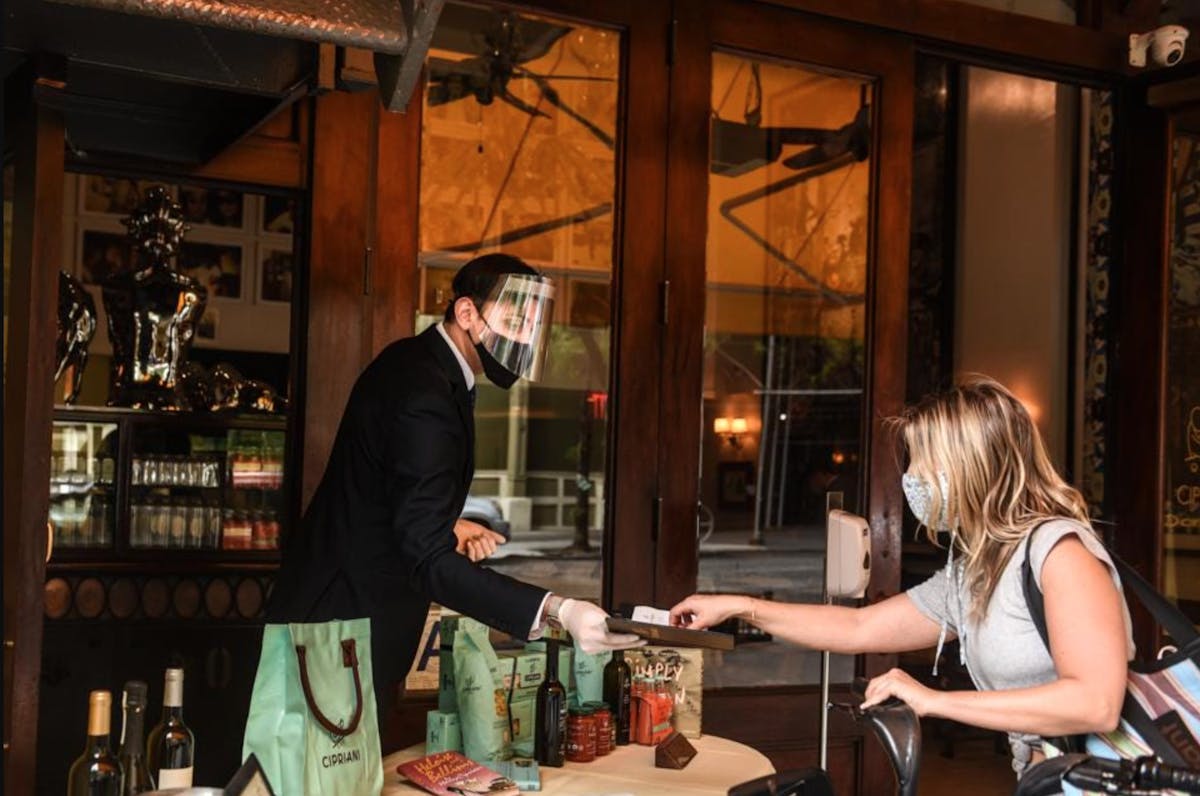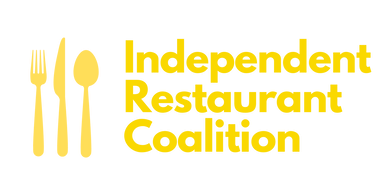January 14 — New Data: Independent Restaurants and Bars Report Bankruptcies, Evictions Following 22 Months Without Federal Relief

FOR IMMEDIATE RELEASE
January 14, 2022
CONTACT:
Jeff Solnet
jeff@precisionstrategies.com
New Data: Independent Restaurants and Bars Report Bankruptcies, Evictions Following 22 Months Without Federal Relief
January survey of restaurants from 50 States finds more than 1 in 4 without Restaurant Revitalization Fund grant face eviction, nearly 50% face bankruptcy
Nearly 60% of restaurants reported sales decreased by more than half in December 2021 during Omicron surge
Nearly 50% of businesses without federal grants were forced to lay off staff because of a COVID-19 related closure or lack of sales in December. This is only true for 33% of businesses that received RRF
***Check Out the Survey Results Here***
WASHINGTON D.C. – Today, the Independent Restaurant Coalition (IRC) unveiled new data collected from nearly 1,200 members of the independent restaurant and bar community in all 50 states demonstrating the dire situation the pandemic has created for businesses, including those that did not receive Restaurant Revitalization Fund (RRF) grants. The survey responses were collected in January and show the precarious situation facing small restaurants and bars as well as the impact of the Omicron variant in recent weeks. It also demonstrates the role the RRF played in helping businesses withstand the lost sales from the surge and keep their doors open.
“This data makes clear what we’ve been saying all along: independent restaurant and bar owners left out of the Restaurant Revitalization Fund are taking on massive debts, laying off employees, and selling personal assets to stay in operation,” said Erika Polmar, Executive Director of the Independent Restaurant Coalition. “The Omicron surge has pushed many restaurants to the brink, especially those still waiting for Restaurant Revitalization Fund grants. These businesses are filing for bankruptcy and receiving eviction notices after crying out for help for nearly two years. This isn’t surprising – the IRC hears these stories everyday. Congress and the Biden Administration need to treat this like the crisis that it is and replenish the RRF. The nearly 200,000 restaurants and bars left behind in the first round of funding do not have much time left.”
The survey demonstrates the important role the RRF has played keeping small restaurants and bars in business and workers employed during the pandemic overall:
42% of businesses that did not receive RRF grants are in danger of filing for or have filed for bankruptcy, compared to just 20% who received RRF grants.
28% of businesses that did not receive RRF grants have received or are anticipating receiving an eviction notice compared to just 10% that received RRF grants.
Restaurant and bar owners who did not receive an RRF grant are taking on more personal debt. 41% of people that did not receive RRF reported taking out new personal loans to support their businesses since February of 2020. This is only true for 19% of businesses that did receive an RRF grant.
Over one in four restaurants that did not receive an RRF grant reported having to support their business by selling a personal asset since February of 2020. This is only true for 10% of businesses that did receive an RRF grant.
On average, businesses that did not receive RRF reported decreasing their staff by 30% since February of 2020. In comparison, businesses that did receive RRF reported decreasing their staff by 21%.
The survey documents the impact of the Omicron surge on already struggling independent restaurants and bars nationwide and how the RRF played a key role at keeping these businesses upright during this difficult time:
46% of businesses reported that their operating hours were impacted for more than 10 days in December 2021.
58% of businesses reported that their sales decreased by more than half in December 2021.
Nearly two-thirds of restaurants report needing to purchase COVID tests, however nearly 65% report trouble finding COVID tests and 38% report pricing of COVID tests increasing during December 2021.
The RRF is helping businesses keep their staff employed during the Omicron surge. 49% of businesses that did not receive RRF were forced to lay off staff because of a COVID-19 related closure or lack of sales. This is only true for 33% of businesses that did receive an RRF grant.
Despite the turmoil facing the industry, independent restaurants and bars around the country are providing better benefits for their employees in the face of the pandemic. Since February 2020:
84% of all restaurants reported raising wages.
37% of all businesses reported adding paid sick leave benefits for employees.
21% of all employees reported starting to add paid vacation for employees.
Members of the IRC community circulated a survey to nearly 1,200 businesses from all 50 states. About 22% of respondents came from the Northeast, 18% from the Midwest, 27% from the South, and 33% from the West. Businesses from California, New York, Illinois, Massachusetts, and Texas contributed the largest share of responses.
The release of this survey continues calls from around the nation for Congress and the Biden Administration to prioritize replenishing the RRF. Last week, the IRC released a letter signed by current and former mayors from 27 cities calling on members of Congress to replenish the RRF. The Mayors, who represent over 16 million Americans, argue that not giving restaurants relief would be “catastrophic” and go on to say, “the Omicron variant is causing more strife for restaurants and bars in such peril that they might not survive the winter.”
Many of these restaurants and bars have accumulated 22 months of debt and cannot take another revenue downfall. Now the Omicron variant is forcing businesses to close their doors to protect their staff and customers. Nearly 200,000 restaurants and bars who applied for relief were left behind by the underfunded program and are in danger of permanent closure. The industry is in dire straits:
More than 90,000 restaurants and bars have closed since the beginning of the pandemic according to the National Restaurant Association.
The Omicron variant is affecting restaurant reservations in cities around the country. Reservations in Brooklyn (68%), Chicago (72%), New Orleans (85%), and Los Angeles (52%) are far below their 2019 levels.
Suppliers are joining together to push for restaurant relief as well. Recently, nearly 30 winemakers, restaurant suppliers and trade groups, including Toast, Baldor Foods, US Foods and DoorDash called on Congress to refill the RRF in a letter sent to Congressional leadership by the IRC. These organizations, representing many of the five million workers restaurants support through the supply chain, cautioned Members of Congress about the cataclysmic effects allowing restaurants and bars to close would have on their businesses.
Existing legislation to refill the RRF carries wide bipartisan support. 295 lawmakers in the House of Representatives and 52 members of the Senate have signed onto four pieces of legislation supporting adding money to the RRF (H.R. 3807, H.R. 4568, S.2091, and S. 2675).
ABOUT THE IRC:
The Independent Restaurant Coalition was formed by chefs and independent restaurant owners across the country who have built a grassroots movement to secure vital protections for the nation’s 500,000 independent restaurants and the more than 11 million restaurant and bar workers impacted by the coronavirus pandemic.
###

